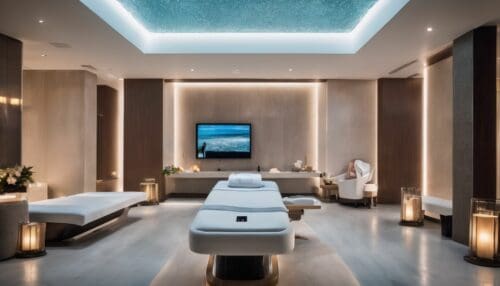Updated On: December 09, 2023 by Yasmin Elwan
With the rise of social media, luxury brands have found themselves compelled to embrace these platforms to create and maintain their presence. This article delves into how luxury brands use social media for marketing, the strategies they employ, the benefits and challenges they face, the effective platforms for engagement, and how they measure success.
How Luxury Brands Use Social Media Platforms
Social media marketing has become indispensable for luxury brands seeking to connect with their target audience. Establishing a strong presence on platforms such as Instagram, Facebook, and Twitter is crucial for maintaining brand visibility and engaging with consumers. These platforms offer an unparalleled opportunity for luxury brands to showcase their products, lifestyles, and values.
Importance of Social Media Marketing for Luxury Brands
Social media marketing (SMM) is fundamental for luxury brands as it allows them to reach a global audience in a cost-effective manner. SMM enables direct engagement with a global audience, fostering brand loyalty and generating a sense of exclusivity. Through captivating visuals and strategic content, luxury brands can cultivate a narrative that resonates with their target demographic, creating a digital aura that mirrors the sophistication of their offerings.
Moreover, SMM facilitates real-time interaction, allowing brands to gauge consumer sentiments and adapt swiftly. In an era where digital presence is synonymous with brand identity, Social Media Marketing stands as an indispensable avenue for luxury brands to not only showcase their products but to craft an immersive narrative that captivates, inspires, and elevates the brand experience.
Influencer Collaboration Strategies for Luxury Brands
Aligning the personal brand of the influencer with the luxury brand’s image and values is paramount for maintaining brand consistency and credibility. Influencers who embody the brand’s ideals of sophistication, elegance, and craftsmanship will resonate more authentically with the target audience, fostering trust and reinforcing the brand’s aspirational qualities.
Moreover, understanding the influencer’s audience demographics and engagement levels is essential for reaching the desired consumer base. Analysing the influencer’s follower base, engagement rates, and overall social media presence can provide valuable insights into the potential impact of the collaboration. Targeting influencers with a strong following among luxury consumers will ensure that the brand’s message reaches the right audience.
Numerous successful influencer collaborations have demonstrated the potential of this marketing strategy. Dior’s collaboration with renowned fashion photographer Nick Knight featured captivating imagery showcasing the brand’s latest collection, generating significant engagement and reinforcing Dior’s reputation for cutting-edge fashion. Similarly, Louis Vuitton’s partnership with Korean idol and BTS member J-Hope highlighted the brand’s commitment to embracing diverse cultural influences and engaging with a younger, global audience.
Strategies for Luxury Brands’ Social Media Marketing

Developing tailored social media marketing strategies is essential for luxury brands to effectively engage class-A consumers and maintain brand distinctiveness while reaching a wider audience.
Social Media Marketing Strategies for Reaching High-End Consumers
Luxury brands employ targeted advertising and content curation to appeal to well-heeled consumers on social media platforms. Utilising sophisticated and visually appealing content helps in resonating with their discerning audience.
Storytelling and aspirational content creation lie at the heart of successful social media marketing for luxury brands. By crafting compelling narratives that showcase the brand’s heritage, craftsmanship, and unique offerings, brands can transport their audience into a world of elegance and sophistication. This aspirational content can evoke a sense of desire and uniqueness, attracting premium consumers who seek to align themselves with these coveted brands.
Identifying and leveraging social media platforms that are popular among class-A consumers is crucial for maximising reach and impact. Instagram, with its emphasis on visual storytelling and aspirational content, is a natural fit for luxury brands. Pinterest, catering to a discerning clientele seeking inspiration for their lifestyle, provides another valuable platform. Additionally, LinkedIn, with its professional focus and affluent user base, can be effectively utilised to connect with elite consumers in the business and technology sectors.
Personalised communication and engagement strategies are essential for catering to the individual preferences of premium consumers. Luxury brands should avoid generic messaging and instead tailor their approach to each consumer’s unique interests and lifestyle. Engaging with followers through personalised responses, exclusive content, and targeted promotions demonstrates a genuine appreciation for their patronage and fosters loyalty among this discerning clientele.
Utilising Exclusivity in Social Media Marketing for Luxury Brands
Building a sense of individuality and a luxury lifestyle on social media is vital for luxury brands. By creating limited-edition content and behind-the-scenes access, they can foster a sense of distinctiveness and desirability among their followers.
Engaging Millennials through Luxury Brand Social Media Marketing
Millennials form a significant portion of the luxury consumer market, and social media provides an avenue for luxury brands to connect with this demographic. Crafting relatable and aspirational content tailored to millennials’ preferences is crucial in engaging this audience.
Benefits and Challenges of Luxury Brands on Social Media
The impact of social media marketing on the luxury market is substantial, presenting both opportunities and challenges for luxury brands.
The Impact of Social Media Marketing on the Luxury Market
Social media has revolutionised the way consumers perceive luxury brands, allowing for greater accessibility and transparency. It has also facilitated direct communication between brands and consumers, reshaping the dynamics of the luxury market. By nurturing these relationships, brands cultivate brand loyalty and encourage repeat business.
Moreover, social media has democratised access to luxury, enabling affluent consumers to explore and discover new brands and products. Through curated influencer partnerships, strategic social media campaigns, and targeted advertising, brands can effectively reach a wider audience, expanding their customer base and driving brand awareness.
Navigating Challenges in Maintaining Brand Exclusivity on Social Media
One of the primary challenges faced by luxury brands on social media is maintaining uniqueness while engaging a broader audience. Balancing accessibility with desirability is a delicate art that luxury brands must master to retain their allure.
Effective Social Media Platforms for Luxury Brands

Choosing the right social media platforms and customising content is pivotal for luxury brands to resonate with elite consumers and enhance their brand image.
Choosing the Right Social Media Platforms for Luxury Brand Representation
Luxury brands must carefully select social media platforms that align with their brand ethos and resonate with their target audience. Each platform holds a unique resonance, and understanding their individual nuances is paramount. For instance, Instagram, with its visually immersive canvas, becomes a curated gallery for opulent aesthetics, while Twitter’s succinct engagement caters to real-time conversations. Facebook, with its expansive reach, weaves a narrative of digital cohesion.
The discernment lies not only in the platform’s features but also in the alignment of its essence with the brand’s identity. A luxury brand might find its visual symphony echoed on Instagram, engage in real-time conversations on Twitter, and cultivate a holistic digital presence on Facebook. The orchestration of these platforms transforms into a multi-dimensional masterpiece, allowing luxury brands to showcase their narrative in a way that captivates diverse audiences and retains an air of desirability.
Customising Social Media Marketing for High-End Consumer Engagement
Tailoring content to appeal to elite consumers is crucial for luxury brands. This involves creating visually captivating and aspirational content that aligns with the discerning tastes of luxury consumers while maintaining the brand’s uniqueness.
Leveraging Social Media Campaigns to Enhance Brand Image for Luxury Brands
Social media campaigns serve as a powerful tool for luxury brands to elevate their brand image, generate excitement around new launches, and connect with their audience on a deeper level. These campaigns are meticulously crafted to align with the brand’s values and evoke a sense of luxury and sophistication.
Measuring Success: Metrics for Luxury Brands’ Social Media Marketing
Evaluating key performance indicators and understanding the return on investment (ROI) is vital for luxury brands to refine their social media strategy and gauge their impact.
Evaluating Key Performance Indicators in Luxury Brand Social Media Marketing
Luxury brands analyse metrics such as engagement rates, reach, and conversion rates to assess the effectiveness of their social media marketing efforts. These insights inform their future strategy and content creation.
Understanding ROI in Social Media Marketing for Luxury Brands
Measuring the return on investment (ROI) of social media marketing for luxury brands can be challenging due to the intangible nature of luxury and the often long-term customer journey. However, by adopting a strategic approach and utilising the right metrics, luxury brands can gain valuable insights into the effectiveness of their social media efforts.
A key aspect of measuring ROI for luxury brands is to define clear and measurable objectives that align with their overall marketing goals. These objectives may include increasing brand awareness, generating leads, driving website traffic, or enhancing brand perception. By establishing these objectives, brands can track their progress and determine the impact of their social media initiatives.
To measure brand awareness, brands can track metrics such as impressions, reach, and follower growth. These metrics indicate the number of times their content is seen and the overall size of their audience. Engagement metrics, such as likes, comments, and shares, provide insights into the level of interaction and interest in their content.
For measuring lead generation, brands can track metrics such as form submissions, newsletter signups, and inquiries from social media channels. These metrics indicate the effectiveness of their social media efforts in attracting potential customers. Website traffic can be measured using analytics tools to quantify the number of visitors originating from social media platforms.
Utilising Analytics to Refine Social Media Strategy for Luxury Brands
By leveraging analytics tools, luxury brands gain valuable insights into consumer behaviour and preferences, enabling them to refine their social media strategy and craft content that resonates with their target audience.
To assess brand perception, brands can incorporate social listening tools to monitor online conversations and sentiment around their brand. This provides valuable insights into how their brand is perceived by consumers and how their social media efforts are influencing perceptions.
As social media continues to play a pivotal role in shaping consumer perceptions and driving brand visibility, it is evident that the strategic integration of social media marketing will remain a key driver of success for luxury brands seeking to engage and resonate with discerning consumers in the digital age.











